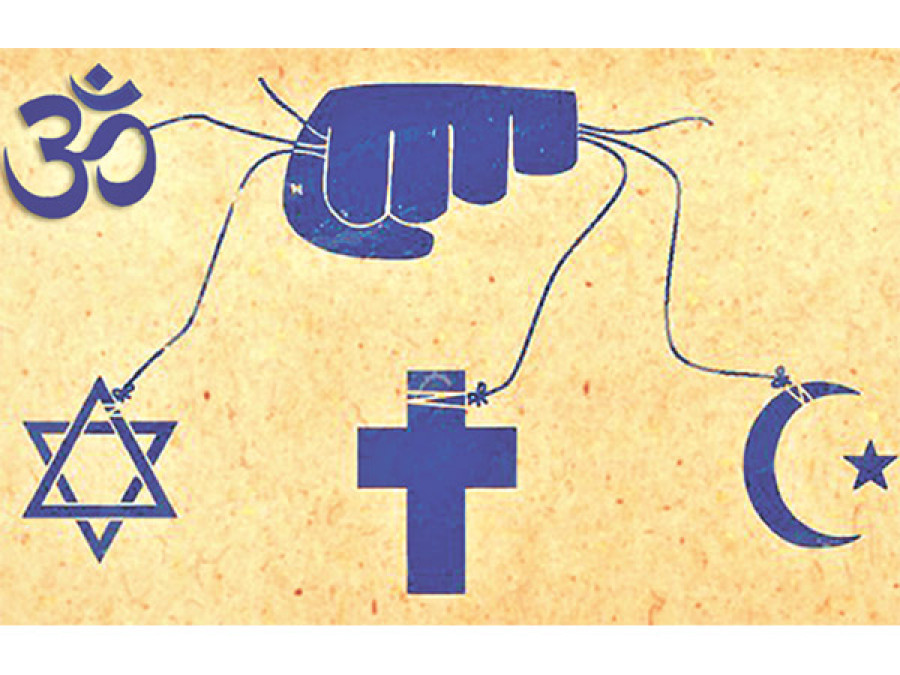Editorial
Why Hindu state now?
Top political leaders should realise that Hindutva could destabilise Nepal’s delicate religious balance.
Last week, Sher Bahadur Deuba said Nepali Congress, the country’s largest parliamentary force, was open to discussing the country’s secular status. The utterance seems to have been part of a calculated strategy. He saw how the public seems to be cottoning to former King Gyanendra and even an utterly vile figure like Durga Prasai, just because they had clad themselves in saffron. With new forces like the Rastriya Swatantra Party and the Janamat Party threatening to wrest away the old vote banks of traditional parties, top Congress and CPN-UML leaders might well see an embrace of Hinduism as their only way back into electoral politics. Perhaps this is why not just Deuba but even communist leaders like Oli and Prime Minister Pushpa Kamal Dahal have now started to openly flaunt their Hindu credentials. So what will be the final outcome of our major political forces using a particular religion as a political tool?
It is often argued that secularism was imposed on Nepal during the making of the interim constitution in 2007. The argument is that while people came out to the street to establish a republic in order to do away with an increasingly autocratic monarch, and at least Madhesh rose up to uphold a federal state, secularism was no one’s demand. True, people weren’t exactly clamouring for a secular state during the 2006 popular uprising. But then, at its heart, secularism is about the state giving equal respect to all religions rather than favouring a particular one. Given Nepal’s rich religious and cultural diversity, it is only fitting that it is a secular state. Yet what about it being a foreign imposition then? Following this line of argument, even republicanism and federalism are not Nepali constructs, and nor is constitutional monarchy for that matter. They are all imported concepts.
Why the new discourse around restoring the country’s Hindu identity is dangerous is that it is the direct outcome of the politicisation of Hinduism under Narendra Modi in India. The southern neighbour, itself a secular state, has seen a steady erosion of democratic values as political Hinduism (or Hindutva) has effectively rendered the country’s 213 million Muslims second-class citizens. Hindutva sees Islam as a mortal threat and is intent on establishing a ‘pure land’ of the Hindus. We already see the effects of Hindutva in the Tarai-Madhesh that these days are being beset by Hindu-Muslim religious troubles as an increasingly showy and strident version of Hinduism has come out of the puja room out on the road.
It would be perilous for Nepal to give in to an intolerant religious dogma like Hindutva. If we look at the current set of most vocal proponents of Hinduism in the country, they are mostly discredited figures like Gyanendra Shah, Durga Prasai and Kamal Thapa who are all trying to use religion to establish a political foothold. They are playing with fire. With over 80 percent of its people still identifying themselves as Hindus, Nepal is already a de facto Hindu state. There is nothing it gains by a new de jure Hindu status. Our top political leaders should be cognisant that Hindutva could badly destabilise Nepal’s delicate religious balance. It should have no place in Nepal. The genie of religious extremism, once out of the box, will be nigh impossible to bottle again.




 17.12°C Kathmandu
17.12°C Kathmandu














